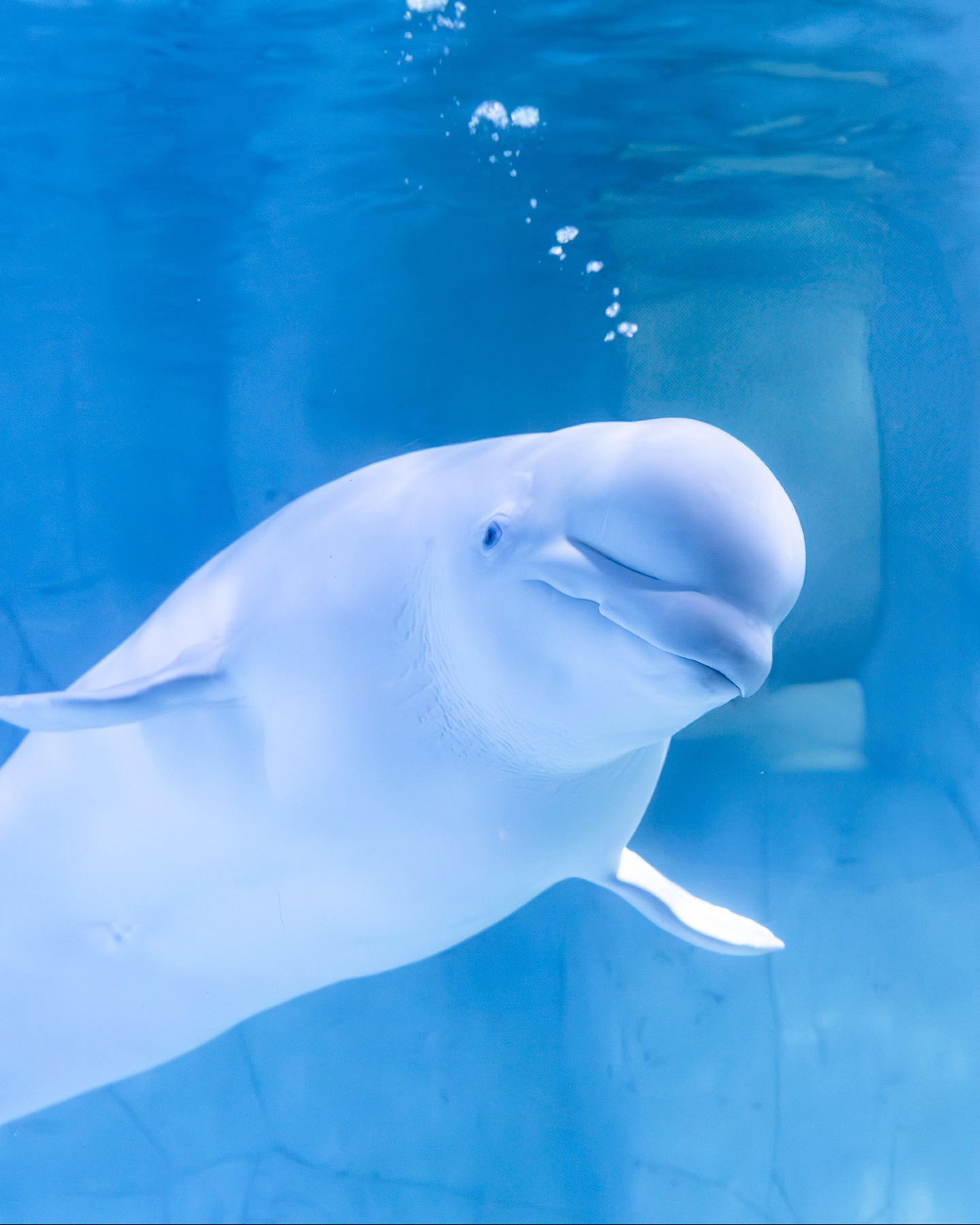- Miranda’s unique personality and its impact on her interactions with both her environment and her caretakers.
- The significance of beluga whale social structures, including the dynamics within the family group at Ártico.
- Conservation efforts and the importance of maintaining healthy habitats for beluga whales.
- The role of zoos and conservation organizations in educating the public about beluga whales and their ecosystems.
In the captivating world of marine mammals, Miranda, a beluga whale residing at Ártico, stands out. Her curious gaze and engaging personality contribute greatly to her interactions with both humans and her fellow belugas. This inquisitive nature has fostered a strong bond between her and the caring staff who look after her every need. Her story offers a fascinating glimpse into beluga behavior and the critical role such creatures play in their ecosystems.
Beluga whales are known for their sociable and intelligent nature. Miranda exemplifies these traits, being calm yet inquisitive. Her interactions with her caretakers demonstrate the distinctive personalities belugas can develop in human care. This close relationship has been instrumental in understanding their behavioral patterns and needs, providing valuable insights for researchers and conservationists alike.
Miranda shares her environment with other belugas, forming a small but dynamic social group. The beluga family at Ártico, including Kylu, Yulka, and Plombir, mirrors the natural social structure observed in the wild. In their natural habitats, beluga whales are known to form pods that can range from a few individuals to several hundred. These social structures are vital for communication, navigation, and defense against predators. At Ártico, Miranda and her companions engage in a variety of social behaviors, offering a closer look at how these bonds manifest in both artificial and natural environments.
The establishment of strong social connections within captive beluga communities plays a crucial role in their well-being. Such dynamics highlight the adaptability of belugas and emphasize their social needs, which are considered when designing suitable environments for them in zoos and aquaria. Creating spaces that encourage natural behaviors and interactions is crucial for fostering the mental and physical health of these intelligent creatures.
Beluga whales inhabit Arctic and subarctic regions, areas that are critically impacted by climate change. Their populations are subject to threats such as melting ice, pollution, and increased human activity. To address these issues, significant conservation efforts are being enacted to safeguard their habitats and promote sustainability in Arctic regions. Organizations working towards these goals employ strategies that include habitat conservation, research on climate impacts, and reducing ocean noise pollution.
Miranda’s presence at Ártico also serves an educational purpose, raising public awareness about the challenges beluga whales face. By providing visitors with engaging and informative experiences, institutions like Ártico aim to foster a broader understanding of marine conservation. Engaging the public through education is crucial, as it cultivates an informed community more likely to advocate for marine life protection.
In addition to providing education and fostering awareness, captive environments serve as controlled settings for studying beluga behavior and physiology. Researchers can gather data on their diet, health, and social interactions, contributing to broader conservation efforts. This research is vital for developing strategies to aid in the preservation of beluga populations in the wild.
The role of zoos and aquaria extends beyond conservation and research. They play a pivotal part in wildlife preservation by participating in breeding programs aimed at maintaining genetic diversity among captive populations. These initiatives are critical, not just for the survival of belugas within these institutions, but potentially for reintroduction efforts aimed at bolstering wild populations.
Miranda and her intriguing nature, combined with her social bonds with both humans and other belugas, underscore the significance of understanding marine life. Beluga whales like her are charismatic ambassadors for their species, serving as symbols of the delicate Arctic environment. Their role in education and conservation is pivotal, prompting action to protect and preserve the natural world they represent. Through their captivating presence, these animals continue to inspire a collective responsibility towards marine conservation.
*****
Source Description
👀 Miranda mirando como le sacamos fotos.
✨ Su carácter curioso, tranquilo y sociable ha permitido que su vínculo con el equipo de cuidadores sea muy fuerte.
❄️ Te invitamos a conocerla, junto al resto de nuestra familia de belugas, Kylu, Yulka y Plombir, en 📍 Ártico.


